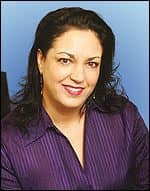 |
Receiving recognition for accomplishments feels good and I’d say David Scott, CBET, a manager at the Children’s Hospital in Aurora, Colo, feels very good right now. The recipient of the 2009 AAMI/GE Healthcare BMET of the Year Award, Scott accepted his award at AAMI’s annual conference in Baltimore in June. Presented at the welcome and keynote session, the annual award honors a BMET’s individual dedication, achievement, and excellence in the field of biomedical equipment technology.
So how good is Dave feeling? “Winning this award is like being named the MVP of a professional sport to me,” Dave said. “I am very honored I was chosen and thank everyone who has helped me out over the years.”
Scott also gives his time and talents to the Colorado Association of Biomedical Technicians (CABMET). He is currently president of the association and has shown his dedication by not only helping CABMET grow, but also by developing a very effective certification study group that is offered via teleconference.
Paralleling the theme of dedication and making a difference, the keynote speech by Ben Carson, MD, director of pediatric neurosurgery, Johns Hopkins Medical Institutions, followed Scott’s award. Carson took the audience along on his journey from poverty to that of a respected neurosurgeon. An author of three books, including Gifted Hands, Carson first received world recognition in 1987 for his leadership of a medical team that was the first to separate twins joined at the back of the head. He has since led similar successful surgeries and, along with his wife, started a foundation to help children.
Carson immediately connected with the audience by saying that he felt at home among the medical devices at the conference. He marveled at how his profession had changed because of the changes in medical devices and said that if he hadn’t become a doctor he would probably have been an engineer because he likes figuring things out. From his humble beginnings he said he learned the power of a dream and shared that it’s important to have dreams, because sometimes it’s the only thing that pushes you when things get tough.
Sharing stories about his life, his beliefs, and his work with humor and compassion, Carson’s inspirational speech gave those in attendance a chance to pause and reflect on the talents each one of us has and how we can use them to initiate positive changes in the world around us. Carson’s speech flowed with ideas that connected the amazing capacity of the brain with our vision of ourselves, our gifts, and how we can use them to “create excellence and uplift other people.”
Carson challenged the audience to ask what kinds of things are available to us and discover what we can do with them. He encouraged us to think outside of the box and not be limited by what someone’s done in the past. Learning from everything that doesn’t work enables us to make significant progress, he proffered, and that’s the key to success.
|
Read previous Up Front articles in the archives. |
“I had the same brain when I was doing poorly as when I was doing well,” Carson said. “I just had a different opinion of who I was.”
He added that one reason we have sophisticated brains is that we can extract from the past and apply it to the present to change the future.
Scott and Carson provide excellent examples of what we are all capable of when we give some thought to our lives, profession, and the world around us. We can set progress in motion. As Carson said, we have the brains and capacity.
Julie Kirst




